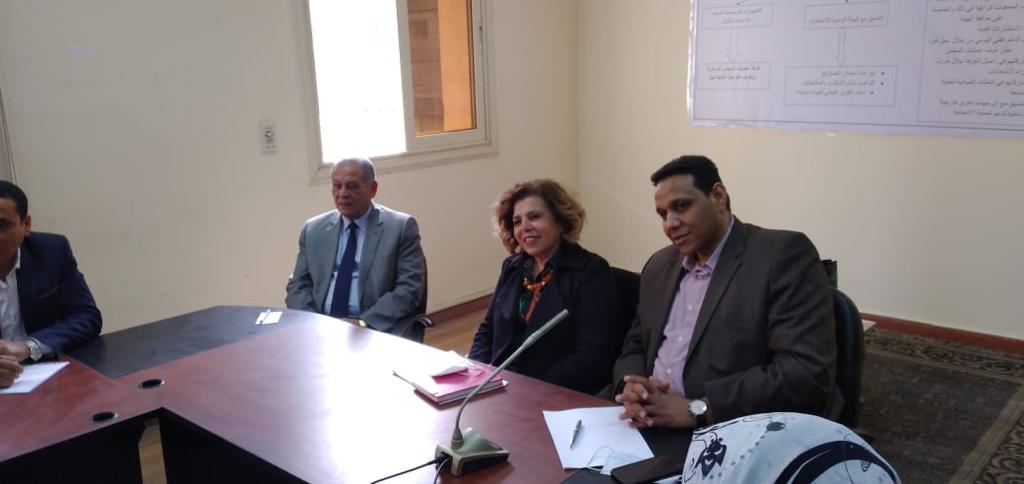Moushira Khattab follows up NCHR’s updated complaints mechanism
Ambassador Dr. Moushira Khattab, President of the National Council for Human Right (NCHR), lauded the paradigm leap witnessed by NCHR’s complaints office since the council’s reconstitution in January 2022.
NCHR’s complaints office held its regular meeting at its headquarters in Giza, attended by Dr. Walaa Gad el-Karim, NCHR member and head of the complaints, monitoring and follow-up office, Mohamed Anwar El-Sadat, NCHR member and head of the civil and political rights committee and the complaints office action team.
During the meeting, the NCHR President extended her thanks to the action team, noting that the complaints mechanism represents the core action of the council, being an open channel between NCHR and the citizens.
The NCHR President highlighted the structural reforms currently taking place within the council, noting that they are necessary to keep abreast with the recent developments and challenges, and to be consistent with the democratic process through which the new NCHR members were selected. She also added that such structural reforms shall enable the council to perform its desired role in enhancing human rights situation in Egypt, supported by the national human rights strategy, the provisions of the constitution and the international human rights conventions ratified by Egypt.
For his part, Dr. Walaa Gad al-Karim, NCHR member and head of the complaints, monitoring and follow-up office, presented the efforts aimed at developing the complaints mechanism in the previous period which were supported by the NCHR President. He added that the aforementioned efforts comprise the digitization of the complaints submission process, in addition to allowing citizens to submit their complaints electronically through NCHR’s website.
The head of the complaints office highlighted the restructuring process aimed at enhancing the process of complaints handling at the office. This comprised dividing the complaints handling process on three key action units; complaints reception, registration and follow up, following by complaints classification according to civil, political, social, economic and cultural rights violations.





 English
English
 Arabic
Arabic
 French
French
